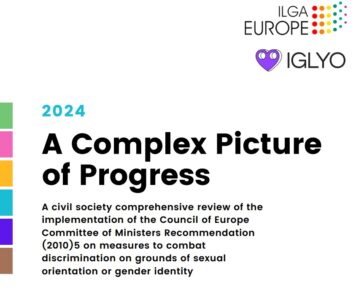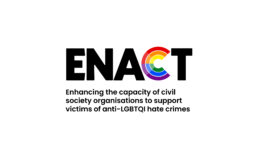In a comprehensive review of LGBTI rights across Europe, conducted by ILGA-Europe on the implementation of the Council of Europe’s Committee of Ministers Recommendation (2010)5, Lithuania emerges as a country with a mixed record on LGBTI rights and protections. This analysis reveals areas where Lithuania has made strides, as well as significant challenges that remain.
Progress in Legal Protections: Lithuania has made some progress in recognizing LGBTI rights, particularly in the realm of sexual orientation. The country has implemented legal protections against discrimination based on sexual orientation in employment, putting it ahead of some Eastern European neighbors like Bulgaria and Ukraine. Additionally, Lithuania’s asylum system recognizes sexual orientation as valid grounds for granting refugee status, a step not taken by all European countries.
Data Collection and Institutional Framework: Lithuania has taken steps to collect data on discrimination based on sexual orientation, particularly in healthcare contexts. This commitment to data collection, while limited, is more advanced than in some other countries in the region. Furthermore, Lithuania’s National Human Rights Institution (NHRI) has a mandate to address discrimination based on sexual orientation, sex characteristics, and gender expression, demonstrating some institutional recognition of LGBTI issues.
Challenges and Areas for Improvement: Despite these positive steps, Lithuania faces significant challenges in fully protecting LGBTI rights:
- Limited Partnership Recognition: Unlike many Western European countries and even some regional neighbors like Croatia and Czechia, Lithuania maintains a constitutional limitation on same-sex marriage and offers no legal recognition for same-sex partnerships.
- Adoption Rights: While countries like Andorra and Austria allow same-sex couples to adopt jointly, Lithuania lacks regulations in this area, leaving same-sex parents in legal limbo.
- “Propaganda” Laws: Lithuania, along with Hungary, maintains laws restricting LGBTI expression, particularly regarding information accessible to minors. This puts it at odds with most EU countries that don’t have such restrictions.
- Trans Rights: Unlike progressive countries such as Malta and Denmark, Lithuania still pathologizes trans identities, basing its limited legal gender recognition procedures on medical diagnoses.
- Comprehensive Protections: While Lithuania offers some protections based on sexual orientation, it lags behind countries like Belgium and Albania in providing comprehensive protections covering all SOGIESC (Sexual Orientation, Gender Identity and Expression, and Sex Characteristics) grounds.
- Asylum Processes: Lithuania lacks specific measures to protect LGBTI asylum seekers from invasive questioning during asylum processes, unlike countries such as Finland and France.
Regional Context: In a regional context, Lithuania’s position is complex. While it generally offers more formal protections than some of its Eastern European neighbors, particularly regarding sexual orientation, it still lags significantly behind Western European standards. The country’s approach to LGBTI rights places it in a middle ground – more progressive than countries like Poland in some aspects, but far from the comprehensive protections offered in countries like Malta or Belgium.
Conclusion: Lithuania’s journey towards full LGBTI equality reflects the broader challenges faced by many Central and Eastern European countries. While there has been progress, particularly in recognizing sexual orientation-based discrimination, significant gaps remain in areas such as gender identity rights, same-sex partnership recognition, and comprehensive anti-discrimination laws. As Europe continues to evolve on LGBTI rights, Lithuania faces the challenge of bridging these gaps to align with more progressive European standards while navigating its own social and political landscape.
The ILGA-Europe report serves as a crucial tool for policymakers, activists, and citizens to understand the current state of LGBTI rights in Lithuania and the broader European context, highlighting both the progress made and the work that remains to be done.




